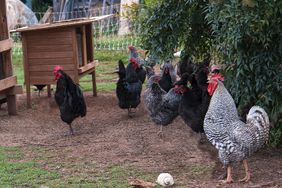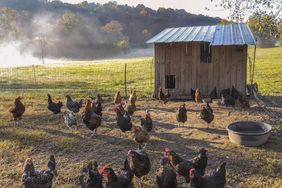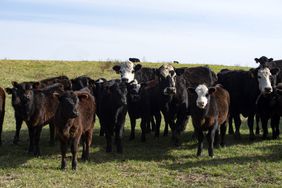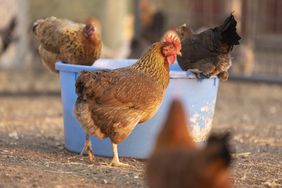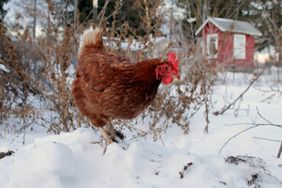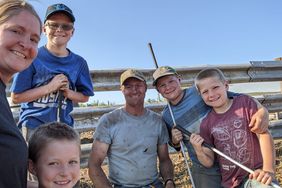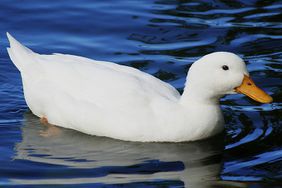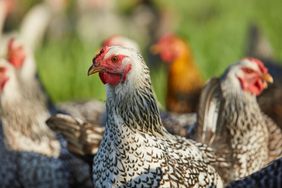:max_bytes(150000):strip_icc()/chkns-2864fb8a973e418da466c77047f7aae0.jpg)
Devastating avian influenza outbreaks have been linked to migratory wild birds, especially waterfowl that can carry highly pathogenic avian influenza and Newcastle disease. They shed the viruses in their saliva, nasal secretions, and feces as they fly south for the winter. The diseases can transmit to backyard poultry if they come in contact.
Brian Jordan is an assistant professor of poultry health and production at the University of Georgia. He says good biosecurity is always your first line of defense.
"Making sure that if you have geese flying over next to your chicken coop that there's a clear barrier between the two areas, keeping your birds enclosed as much as possible so that they are physically separated from comingling with other birds," says Jordan. "If you are going out into some of those areas, making sure that you're taking the proper biosecurity precautions; cleaning and disinfection of your clothes and your shoes before you come back into your flock."
Birds simply flying over your place is not a huge concern, and there's not a whole lot we can do since we can't re-direct their migratory pathway.
Keep a close eye on your flock during this time and watch for warning signs of avian influenza or virulent Newcastle disease.
"They are both respiratory viruses," he says. "The typical respiratory signs may proceed the infection, although, with high-path AI, and with the virulent Newcastle, because they are so aggressive a lot of times you won't see the traditional respiratory signs, you will just see hemorrhaging and mortality."
If your birds are sick or dying, report them to your local veterinarian or Extension office.
